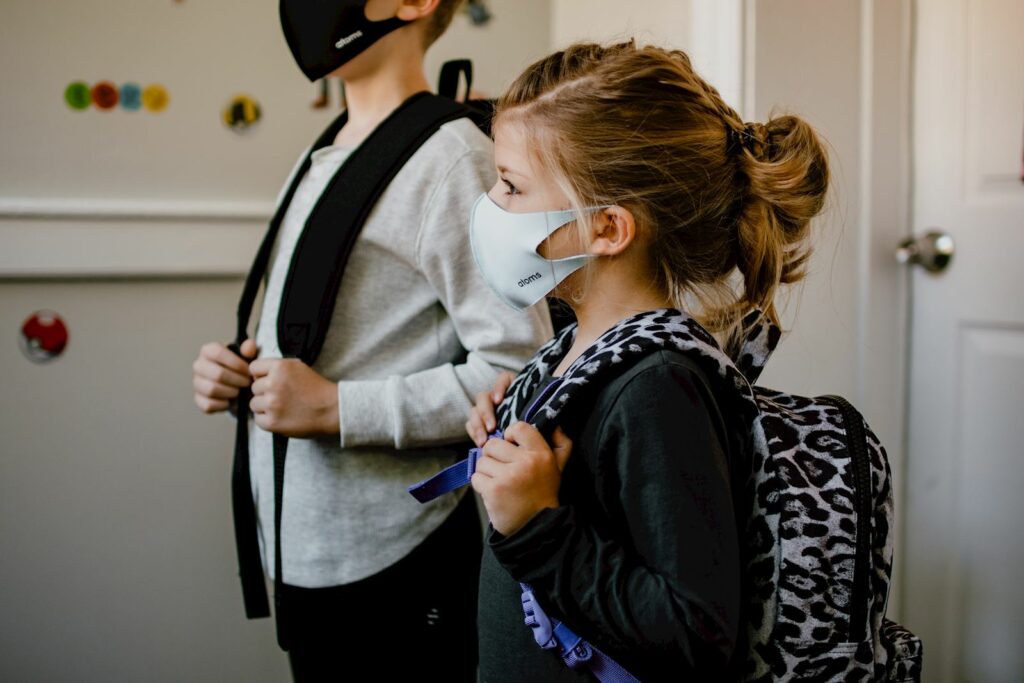
Face masks have become the norm on airplanes and likely will be required for the foreseeable future. While airlines are following CDC guidance around mask policies on flights, each carrier has their own rules and interpretations they abide by. This includes especially what types of masks are allowed. Adding to the complication is differing rules between the U.S. and other regions including the EU. This week we give you a high-level overview of some of the airlines’ rules around mask wearing. The key is to check with your individual airline before you fly to avoid complications including denied boarding. Rules are changing constantly, so here is the latest.
Are cloth masks allowed in the U.S.? On U.S. domestic carriers, the answer generally is yes but with exceptions. Delta Air Lines specifically prohibits bandanas, scarves, masks with exhaust valves, and any mask with slits, punctures, or holes. Similarly, United Airlines bans bandanas and specifies a face shield alone is not considered adequate protection. Southwest prohibits bandanas, scarves, ski masks, balaclavas, and single layer masks; American Airlines bans balaclavas, bandanas, exhaust valves, scarves, and gaiters; JetBlue doesn’t allow masks connected to tubing or battery-operated filters; and Hawaiian Airlines won’t accept scarves, ski masks, balaclavas, and bandanas. As this illustrates, each airline interprets CDC guidance a little differently. To be safe, plan to bring a medical mask, a KN95 or N95 when in doubt.
Are cloth masks allowed internationally? This is where you’re most likely to run into trouble if traveling with a cloth mask alone. Finnair, Air France, and Lufthansa have recently mandated that medical masks be worn, prohibiting fabric masks and those with exhaust valves. LATAM Airlines in Chile also bans fabric and reusable masks on domestic flights and requires double up on masks when traveling to or through Lima, Peru.
What about kids? In many countries including the U.S. and Canada, children ages two and over are required to comply with the same masking requirements as adults. Europe is somewhat more relaxed with a recommended minimum age requirement of six, though it can vary by the carrier.
How strictly are mask rules enforced? This varies by the individual airline, and really by the individual situation and flight crew. There are stories of families being denied boarding or being removed from a flight because a young child would not comply with the mask rules. In our personal experience, flight crews have been understanding that young children might not be able to comply 100% of the time. Adults that refuse to wear a mask after several reminders do run the risk of being removed from the airplane, denied future flights, fines, and other penalties. To avoid all that hassle it’s best to just go with the flow.
Are there exceptions to wearing a mask? Flyers are not required to wear a mask when taking medication, eating or drinking. Some airlines or flight crew request that folks mask up between bites or sips, but this will vary. Flyers with a medical condition that prevents them from wearing a mask can request an exemption. Each airline’s exemption process is different but often requires submitting a request ahead of time and speaking with an airline’s airport staff to verify the exemption. Travelers requesting an exemption should arrive extra early at an airport to ensure enough time to process the request.
The federal mask mandate is in place through January 2022, though it would not surprise us if this is extended. Wearing a mask on board a flight might be somewhat inconvenient or uncomfortable, but don’t let it get in the way of exploring the world again! Check with your airline’s specific masking policy before you travel, and you’ll be on the way to a much-needed stress free vacation.

 My goal is to simplify travel-planning through an equal exchange process where I acquire your ideas and expectations for your trip relieving you of the worry, hassle, stress and time that accompanies Do-It-Yourself planning.
My goal is to simplify travel-planning through an equal exchange process where I acquire your ideas and expectations for your trip relieving you of the worry, hassle, stress and time that accompanies Do-It-Yourself planning.